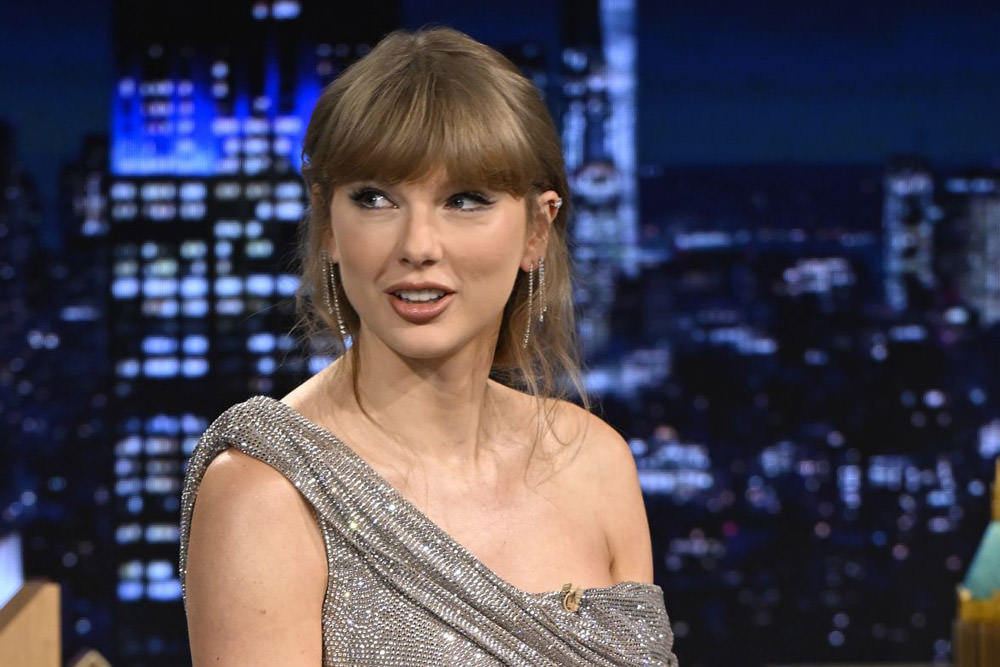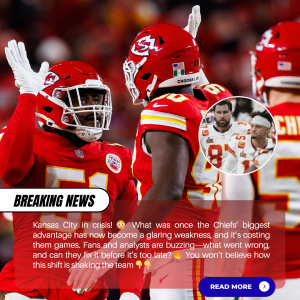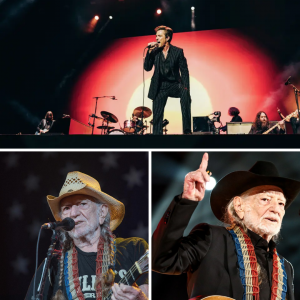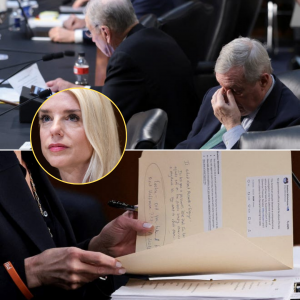On Monday night, Jimmy Fallon didn’t just host Taylor Swift — he handed her The Tonight Show.
The episode, which clocked more than 50 minutes of Swift-focused airtime (including digital extras), effectively transformed The Tonight Show Starring Jimmy Fallon into The Taylor Swift Show. The word “TAY/kover,” already teased by Late Night with Seth Meyers for her upcoming Wednesday appearance, suddenly belonged to Fallon.
:max_bytes(150000):strip_icc():focal(749x0:751x2)/taylor-swift-jimmy-fallon-tonight-show-100725-1-37d11a9a14b740f6a083f6b0ae6c164d.jpg)
And it wasn’t subtle. From the shimmering orange title card to the show’s opening moments, it was clear this would be an all-Swift evening — a late-night flex that underscored both Fallon’s longstanding pop-culture savvy and NBC’s ongoing commitment to making The Tonight Show the network’s brightest, safest star.
The Mother of All Guests
Fallon opened with a grin that barely contained his excitement. “The mother of all guests, Taylor Swift, is here tonight,” he told his studio audience, pausing for a wave of cheers. “I just want to quickly thank all the Swifties around the world watching us tonight. Thank you for tuning in. Thank you for all your support.”
It set the tone for what followed: a celebration, not an interview. Even Fallon’s monologue — which usually mixes topical humor with pop-culture punchlines — was built around the guest of honor. Every joke about The Life of a Showgirl, Swift’s new album, landed as a tribute.
Then, in a move that broke Tonight Show protocol, The Roots interrupted.
“We don’t want to hear any more jokes tonight,” Questlove told Fallon. “Just do them tomorrow.”
Co-host Tariq Trotter chimed in: “We love you, but we’re here for her. Stop wasting time and bring her out already!”
The crowd went wild. Within seconds, Fallon ditched the usual desk piece, skipped the first commercial break, and introduced “the biggest pop star on the planet.” It was 11:40 p.m., barely five minutes into the show.
25 Minutes on Air — and 50 Online
What followed was The Tonight Show’s most guest-dominated episode in years. Swift appeared in three full segments, discussing The Life of a Showgirl, her engagement to Travis Kelce, and an array of rumors in a “myth-busting” game.
Fallon and Swift’s chemistry — honed over a decade of televised interactions — was effortless. They giggled, teased, and occasionally veered off-topic, while Fallon deftly played the enthusiastic friend rather than the probing journalist.
In total, Swift’s interview took up about 25 minutes of the 43-minute broadcast. But extended digital cuts released afterward revealed the full picture: Fallon and Swift actually talked for over 50 minutes, split into multi-part web exclusives promoted during commercial transitions.
It was part of a growing Tonight Show strategy — build the broadcast around star power, then push the overflow to YouTube and Peacock, where the clips drive millions of additional views.
Fallon’s “Event Television” Strategy
The episode marked one of Fallon’s most deliberate plays yet for pop-culture dominance. With late-night television fractured and viewership increasingly online, Fallon and NBC have leaned into the idea of event television — nights built around celebrities who can mobilize massive digital audiences.

And no one does that like Taylor Swift.
In the post–Colbert era, where politics have dominated other networks’ late-night output, Fallon’s show has become the industry’s go-to for musical megastars and blockbuster movie casts. His style — inclusive, friendly, and non-confrontational — creates an environment where big-name guests can relax and go viral for the right reasons.
Monday’s episode was textbook Fallon: low on tension, high on charm, and engineered for cross-platform virality.
The Swift Effect
Swift’s appearance was more than just another celebrity booking — it was her first late-night sit-down since 2022, timed to the release of The Life of a Showgirl. The episode drew an immediate response from Swift’s fandom, sending “Fallon” and “TAY/kover” trending on X within minutes of airing.
Throughout the night, the studio audience — packed with self-identified Swifties — treated each reveal as breaking news. Fallon, ever the master of the crowd, played along with a knowing grin.
Even the show’s regulars seemed in on the bit. During the opening, Questlove replaced his usual roll call of the episode number with a single shout: “She’s here!”
By the end, Fallon had essentially turned over his stage, desk, and camera crew to Swift. Their final segment featured a deep-dive into individual Showgirl tracks, filmed on a specially built set of orange lighting and curtain backdrops designed to mirror Swift’s tour aesthetic.
A Swift-Connected Guest List
Even after Swift left the stage, the night’s energy revolved around her. Fallon’s first question to his next guest, actress Keri Russell, was about a moment from early in Swift’s career — a callback to an obscure anecdote LateNighter had resurfaced days before.
And the evening’s musical guest, The Format, carried a subtle Swift connection of their own: frontman Nate Ruess was a past collaborator of Jack Antonoff, Swift’s longtime producer until her latest sonic reinvention.

If Fallon’s episode had been a thesis, it was this: there’s no such thing as too much Taylor.
Fallon vs. Meyers: A Friendly Rivalry
The timing added an extra layer of late-night intrigue. Fallon’s NBC counterpart, Late Night with Seth Meyers, had already promoted Swift’s Wednesday visit as a “TAY/kover” — a cheeky play on her takeover of the show.
By rolling out his own unofficial TAY/kover two days earlier, Fallon both outflanked and complemented his lead-out. The result is a rare instance of two late-night programs on the same network coordinating around the same star — an old-school promotional synergy that recalls NBC’s heyday during the Friends and ER era.
For Meyers, Wednesday’s show now carries the weight of following Fallon’s mega-event. For NBC, it’s a win either way: two nights of Swift mania, double the ratings, and endless digital engagement.
The Broader Late-Night Context
Fallon’s Taylor Swift extravaganza also highlights how differently each late-night host approaches relevance. While Stephen Colbert, Jimmy Kimmel, and Seth Meyers have leaned into political commentary — often putting them at odds with the current administration — Fallon continues to dominate the apolitical lane.
His interviews aren’t meant to challenge or expose; they’re designed to celebrate. To some critics, that makes his show feel toothless. But to NBC, it’s exactly the point.

At a time when late-night networks are questioning their investments — with CBS exiting the genre and ABC suspending Kimmel earlier this year — Fallon’s formula provides stability. His Tonight Show remains a reliable source of viral clips, advertiser-friendly segments, and major cultural moments.
The Swift takeover, then, wasn’t just about fandom. It was proof of concept.
NBC’s Golden Child
Fallon’s deepening partnership with NBC extends far beyond The Tonight Show. Between his production company Electric Hot Dog and his expanding slate of game shows (That’s My Jam, Password, the upcoming Wordle adaptation), he’s effectively become NBC’s most bankable star outside of sports and SNL.
And NBC has repaid that faith, building its late-night identity around him. When The Tonight Show turns into a Taylor Swift concert for half the night, it’s not just a pop-culture stunt — it’s a reflection of NBC’s strategy: big stars, bigger synergy, and content that plays across every platform.
Why It Worked
The key to Monday’s success was its sincerity. Fallon’s enthusiasm wasn’t performative; it was genuine. His rapport with Swift was warm and unguarded, their laughter spontaneous, their conversation fluid.
Unlike other late-night hosts, Fallon doesn’t use celebrity interviews as setups for punchlines or political commentary. He uses them as collaborations — and Swift, perhaps more than any guest alive, thrives in that kind of space.

The result was an episode that felt less like traditional late-night television and more like a hybrid of fan event, talk show, and live-stream celebration.
The Verdict: A Smart, Self-Aware Spectacle
In giving Taylor Swift more airtime than any guest in recent memory, Fallon didn’t reinvent the wheel — he just spun it faster and flashier than anyone else. The episode blended old-school late-night showmanship with 2025’s new media realities: celebrity culture, fandom-driven marketing, and digital distribution.
While critics might dismiss it as pandering, Fallon’s TAY/kover was strategically brilliant. It gave fans what they wanted, delivered NBC a week of guaranteed virality, and reaffirmed The Tonight Show’s place as pop culture’s most reliable playground.
As Fallon said in his monologue, “The mother of all guests is here tonight.”
He wasn’t exaggerating — and he wasn’t just introducing Taylor Swift. He was reintroducing The Tonight Show as late-night’s last guaranteed blockbuster.





